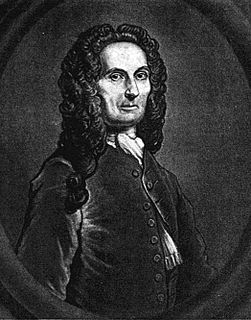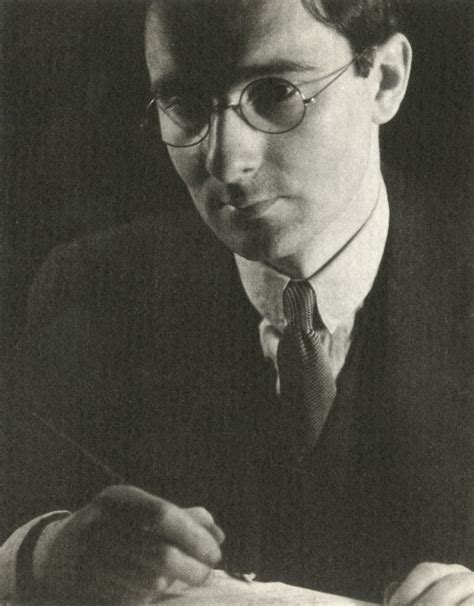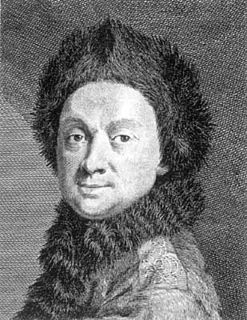A Quote by John Arbuthnot
I believe the calculation of the quantity of probability might be improved to a very useful and pleasant speculation, and applied to a great many events which are accidental, besides those of games; only these cases would be infinitely more confused, as depending on chances which the most part of men are ignorant of.
Related Quotes
Further, the same Arguments which explode the Notion of Luck, may, on the other side, be useful in some Cases to establish a due comparison between Chance and Design: We may imagine Chance and Design to be, as it were, in Competition with each other, for the production of some sorts of Events, and may calculate what Probability there is, that those Events should be rather be owing to the one than to the other.
Even in an advanced stage of civilization, there is always a tendency to prefer those parts of literature which favor ancient prejudices, rather than those which oppose them; and in cases where this tendency is very strong, the only effect of great learning will be to supply the materials which may corroborate old errors and confirm old superstitions. In our time such instances are not uncommon; and we frequently meet with men whose erudition ministers to their ignorance, and who, the more they read the less they know.
The kind of knowledge which is supported only by observations and is not yet proved must be carefully distinguished from the truth; it is gained by induction, as we usually say. Yet we have seen cases in which mere induction led to error. Therefore, we should take great care not to accept as true such properties of the numbers which we have discovered by observation and which are supported by induction alone. Indeed, we should use such a discovery as an opportunity to investigate more exactly the properties discovered and to prove or disprove them; in both cases we may learn something useful.
Many able Gardeners and Husbandmen are yet Ignorant of the Reason of their Calling; as most Artificers are of the Reason of their own Rules that govern their excellent Workmanship. But a Naturalist and Mechanick of this sort is Master of the Reason of both, and might be of the Practice too, if his Industry kept pace with his Speculation; which were every commendable; and without which he cannot be said to be a complete Naturalist or Mechanick.
From Christ on down to Edison, the men who have achieved most have been those who met with the most stubborn forms of temporary defeat. This would seem to justify the conclusion that Infinite Intelligence has a plan, or a law, by which it hurdles men over many obstacles before giving them the privilege of leadership or the opportunity to render useful service in a noteworthy fashion.
If E is considered to be a continuously divisible quantity, this distribution is possible in infinitely many ways. We consider, however-this is the most essential point of the whole calculation-E to be composed of a well-defined number of equal parts and use thereto the constant of nature h = 6.55 ×10-27 erg sec. This constant multiplied by the common frequency ? of the resonators gives us the energy element E in erg, and dividing E by E we get the number P of energy elements which must be divided over the N resonators.
If a nonnegative quantity was so small that it is smaller than any given one, then it certainly could not be anything but zero. To those who ask what the infinitely small quantity in mathematics is, we answer that it is actually zero. Hence there are not so many mysteries hidden in this concept as they are usually believed to be. These supposed mysteries have rendered the calculus of the infinitely small quite suspect to many people. Those doubts that remain we shall thoroughly remove in the following pages, where we shall explain this calculus.
However dangerous might be the shock of a comet, it might be so slight, that it would only do damage at the part of the Earth where it actually struck; perhaps even we might cry quits if while one kingdom were devastated, the rest of the Earth were to enjoy the rarities which a body which came from so far might bring it. Perhaps we should be very surprised to find that the debris of these masses that we despised were formed of gold and diamonds; but who would be the most astonished, we, or the comet-dwellers, who would be cast on our Earth? What strange being each would find the other!
To hinder, besides, the farmer from selling his goods at all times to the best market, is evidently to sacrifice the ordinary laws of justice to an idea of public utility, to a sort of reasons of state; an act of legislative authority which ought to be exercised only, which can be pardoned only in cases of the most urgent necessity.
When we hit a nail with a hammer, the whole of the shock received by the large head of the nail passes into the point without any of it being lost, although it is only a point. If the hammer and the head of the nail were infinitely big it would be just the same. The point of the nail would transmit this infinite shock at the point to which it was applied. Extreme affliction, which means physical pain, distress of soul and social degradation, all at the same time, constitutes the nail. The point is applied at the very center of the soul, whose head is all necessity, spreading throughout space and time.
The Reader may here observe the Force of Numbers, which can be successfully applied, even to those things, which one would imagine are subject to no Rules. There are very few things which we know, which are not capable of being reduc'd to a Mathematical Reasoning, and when they cannot, it's a sign our Knowledge of them is very small and confus'd; and where a mathematical reasoning can be had, it's as great folly to make use of any other, as to grope for a thing in the dark when you have a Candle standing by you.
It is so very easy and so very pleasant, too, to read only books which lead to nothing, light and interesting books, and the more the better, that it is almost as difficult to wean ourselves from it as from the habit of chewing tobacco to excess, or of smoking the whole time, or of depending for stimulus upon tea or coffee or spirits.


































